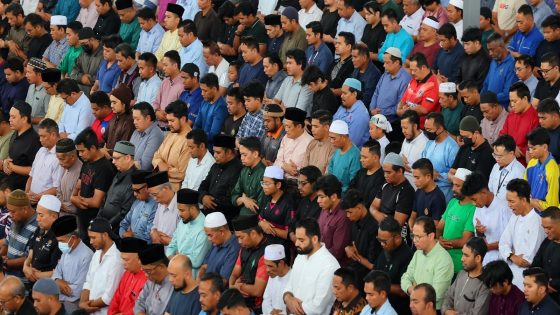Jakim has aligned the mosque sermon texts in Malaysia to prevent political interference, a significant move announced recently. On February 25, 2025, this decision aims to uphold the sanctity of religious teachings and ensure that mosques remain apolitical. How will this impact the community and the role of religious leaders?
- Khutbah texts should avoid political interference.
- Sultan Nazrin criticizes excessive khutbah texts.
- Misuse of mosques for political propaganda condemned.
- Sultan Nazrin highlights loss of etiquette.
- Mosques must be free from misleading agendas.
Jakim’s Initiative to Maintain Apolitical Mosque Sermons in Malaysia
Why is it essential for religious spaces to remain free from political agendas? Jakim’s recent alignment of sermon texts aims to keep mosques as places of worship rather than political battlegrounds. This initiative reflects a growing concern about the misuse of religious platforms for political gain.
Impact of the New Policy on Malaysian Communities
The new policy by Jakim is expected to have a profound impact on Malaysian communities. By ensuring that mosque sermons are free from political content, it promotes a focus on spirituality and community welfare. This can lead to several positive outcomes:
- Strengthened community bonds through shared religious values.
- Reduction in political tensions during congregational gatherings.
- Encouragement of respectful discourse within the community.
- Enhanced focus on charitable activities and social welfare.
Challenges in Implementing the New Mosque Sermon Guidelines
While the initiative is commendable, challenges remain in its implementation. Some religious leaders may resist changes, feeling that their voices are being stifled. Additionally, ensuring compliance across all mosques can be difficult, especially in areas with strong political affiliations.
The Role of Religious Leaders in Upholding the New Guidelines
Religious leaders play a crucial role in this transition. They must embrace the new guidelines and educate their congregations on the importance of keeping religious practices free from political influences. By doing so, they can help foster a sense of unity and purpose within their communities.
In conclusion, Jakim’s initiative is a step towards preserving the integrity of religious spaces in Malaysia. By preventing political interference, it allows for a more focused and genuine practice of faith, which is essential for community cohesion.































